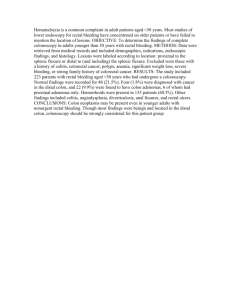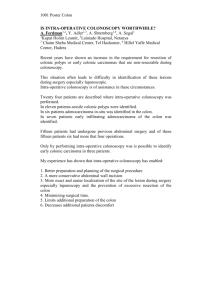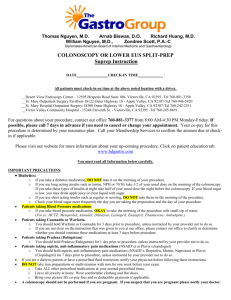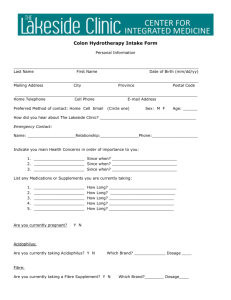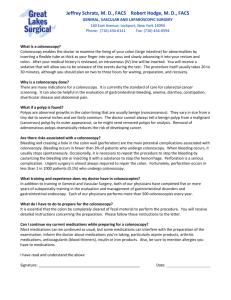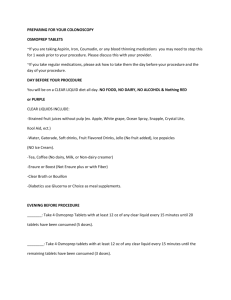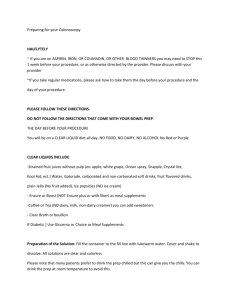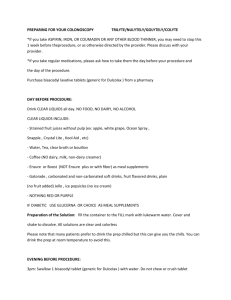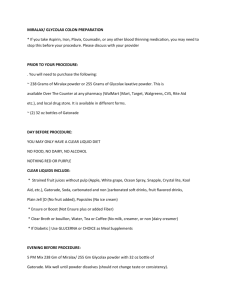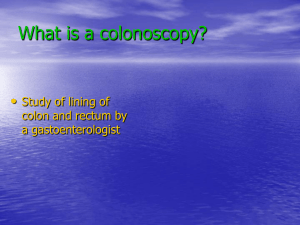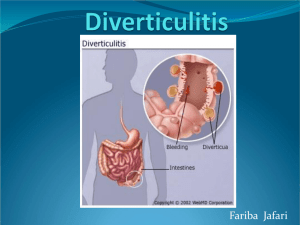Colonoscopy - University Colon & Rectal Surgery
advertisement
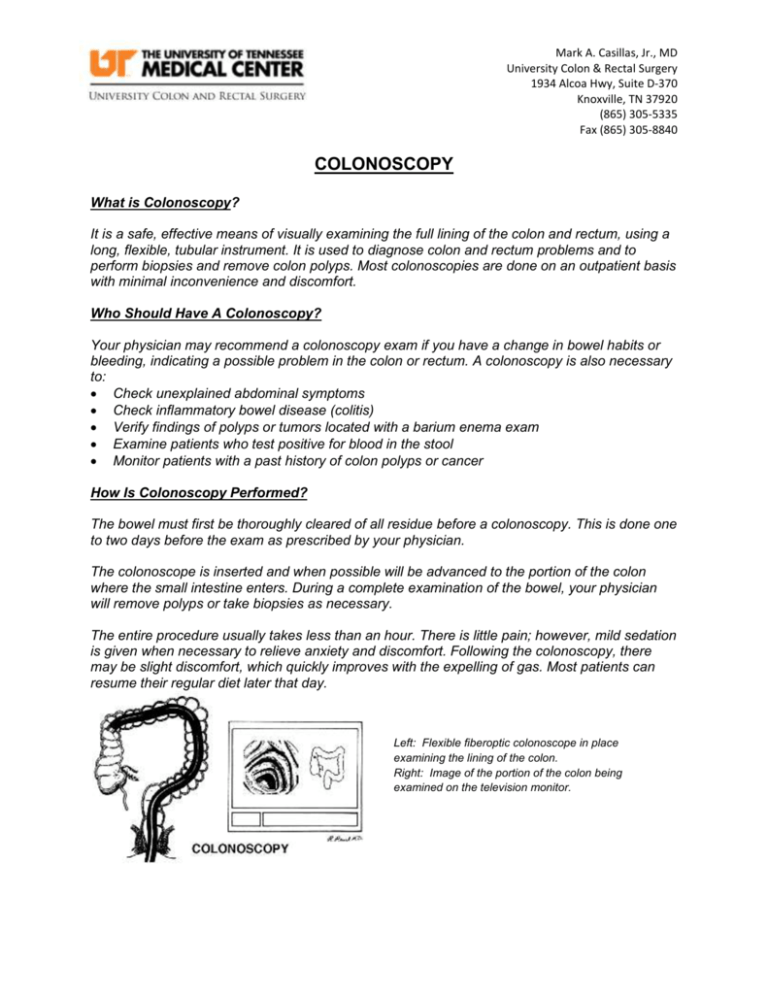
Mark A. Casillas, Jr., MD University Colon & Rectal Surgery 1934 Alcoa Hwy, Suite D-370 Knoxville, TN 37920 (865) 305-5335 Fax (865) 305-8840 COLONOSCOPY What is Colonoscopy? It is a safe, effective means of visually examining the full lining of the colon and rectum, using a long, flexible, tubular instrument. It is used to diagnose colon and rectum problems and to perform biopsies and remove colon polyps. Most colonoscopies are done on an outpatient basis with minimal inconvenience and discomfort. Who Should Have A Colonoscopy? Your physician may recommend a colonoscopy exam if you have a change in bowel habits or bleeding, indicating a possible problem in the colon or rectum. A colonoscopy is also necessary to: Check unexplained abdominal symptoms Check inflammatory bowel disease (colitis) Verify findings of polyps or tumors located with a barium enema exam Examine patients who test positive for blood in the stool Monitor patients with a past history of colon polyps or cancer How Is Colonoscopy Performed? The bowel must first be thoroughly cleared of all residue before a colonoscopy. This is done one to two days before the exam as prescribed by your physician. The colonoscope is inserted and when possible will be advanced to the portion of the colon where the small intestine enters. During a complete examination of the bowel, your physician will remove polyps or take biopsies as necessary. The entire procedure usually takes less than an hour. There is little pain; however, mild sedation is given when necessary to relieve anxiety and discomfort. Following the colonoscopy, there may be slight discomfort, which quickly improves with the expelling of gas. Most patients can resume their regular diet later that day. Left: Flexible fiberoptic colonoscope in place examining the lining of the colon. Right: Image of the portion of the colon being examined on the television monitor. Mark A. Casillas, Jr., MD University Colon & Rectal Surgery 1934 Alcoa Hwy, Suite D-370 Knoxville, TN 37920 (865) 305-5335 Fax (865) 305-8840 What Are The Benefits Of Colonoscopy? With colonoscopy, it is now possible to detect and remove most polyps without abdominal surgery. Colonoscopy is more accurate than a x-ray exam of the colon to detect polyps or early cancer. Frequently, polyps can be removed at the same time, a major step towards the prevention of colon cancer. What Is A Colon And Rectal Surgeon? Colon and rectal surgeons are experts in the surgical and non-surgical treatment of colon and rectal problems. They have completed advanced training in the treatment of colon and rectal problems in addition to full training in general surgery. Colon and rectal surgeons treat benign and malignant conditions, perform routine screening examinations and surgically treat problems when necessary.
